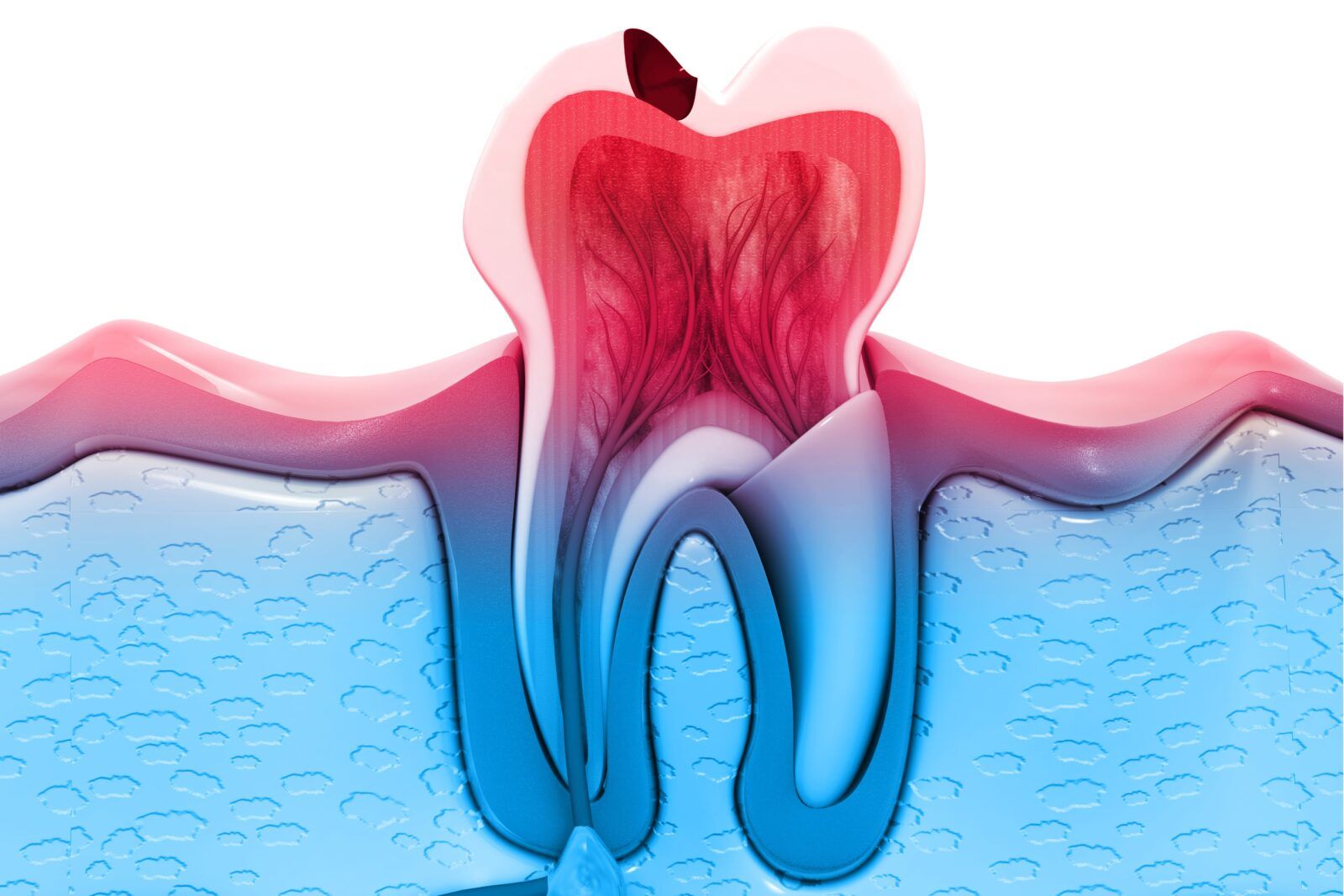Root canals are one of the most common dental procedures, yet they are often misunderstood. This blog aims to provide clear, factual information about root canals, helping to alleviate any concerns or misconceptions you might have.
Why a Root Canal?
A root canal is a dental procedure designed to treat problems of the soft pulp tissue inside the tooth. This treatment becomes necessary when the pulp, which contains nerves and blood vessels, becomes inflamed or infected due to various causes such as deep tooth decay, repeated dental procedures on the tooth, or a crack or chip in the tooth. The procedure involves removing the damaged area of the tooth (the pulp), cleaning and disinfecting it, and then filling and sealing it. The common term “root canal” actually refers to the natural cavity within the center of the tooth, and the procedure itself is technically called endodontic therapy. Root canal treatment is a crucial measure to save a tooth that would otherwise have to be removed. The goal of the treatment is not only to relieve tooth pain but also to prevent the spread of infection and preserve the tooth’s functionality.
The Reality of Root Canals
Common myths about root canals often evoke unnecessary fear, but understanding the facts can help dispel these misconceptions. One prevalent myth is that root canal treatments are extremely painful, but in reality, with modern anesthesia and advanced techniques, they are no more uncomfortable than getting a filling. The procedure is typically pain-free, and any mild discomfort post-treatment can usually be managed with over-the-counter painkillers.
Another widespread misconception is that root canals cause illness or contribute to systemic health problems, but there is no scientific evidence supporting this claim. On the contrary, root canal treatments eliminate bacteria from the infected roots, improving oral health and preventing the spread of infection.
Additionally, the myth that extraction is a better option than a root canal is misleading. Tooth extraction can lead to significant long-term issues like misalignment of teeth, difficulty chewing, and costly dental procedures like implants or bridges. In contrast, root canal therapy preserves the natural tooth, maintaining proper mouth function and aesthetics. Understanding these facts can alleviate fears and misconceptions about root canal treatments, highlighting them as a safe, effective, and pain-manageable dental procedure.
Understanding the Procedure
- Diagnosis: Your dentist will first take X-rays to assess the extent of the damage.
- Anesthesia: Local anesthesia is applied to the affected tooth, making the procedure pain-free.
- Pulpectomy: A small opening is made in the crown of the tooth. Through this, the diseased pulp is removed.
- Filling: The roots that have been opened are filled with gutta-percha material and sealed off with cement.
- Restoration: Often, a tooth that needs a root canal will also need a crown to protect it.
- Aftercare: After a root canal, the tooth may feel sensitive for a few days, especially if there was pain or infection before the procedure. This discomfort is usually managed with over-the-counter pain medications. It’s important to follow your dentist’s aftercare instructions to ensure a smooth recovery.
Conclusion
Root canal therapy is a safe, effective treatment for saving a tooth that might otherwise have to be removed. With modern anesthetic techniques and advancements in dental technology, it’s a straightforward procedure with little discomfort. If you’re experiencing tooth pain or have concerns about your oral health, consult your dentist for the best course of action.

